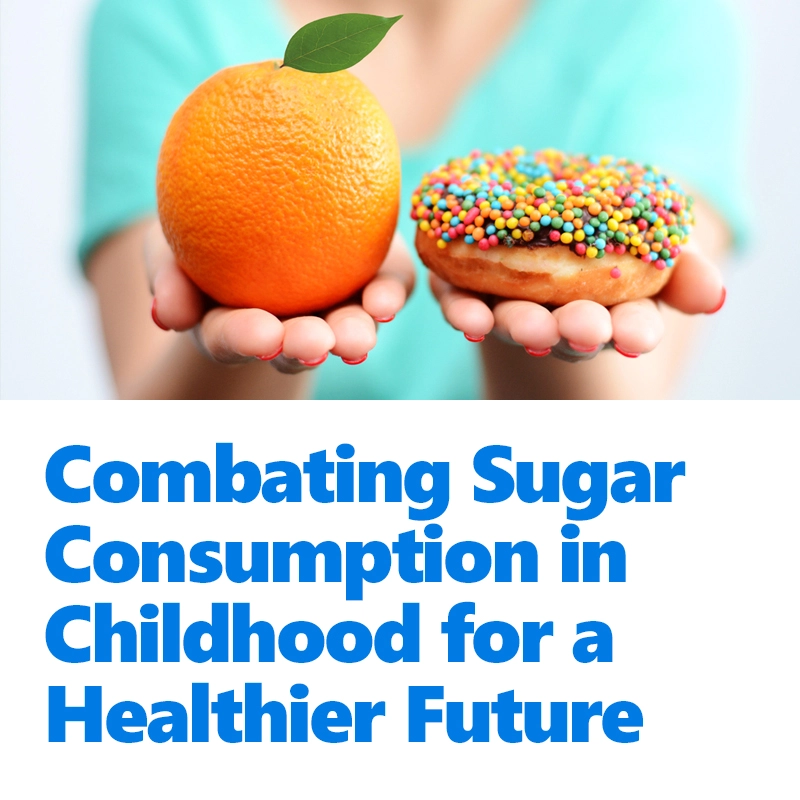The Impact of Sugar Consumption on Health
Welcome to our comprehensive blog series exploring the intricate relationship between childhood sugar consumption and its lifelong implications, including oral health issues. In this series, we embark on a journey through the historical roots, multifaceted determinants, health impacts and practical strategies to combat excessive sugar intake among children.

Sugar consumption has far-reaching implications for both oral and overall health, particularly in early childhood. Research shows that sugar intake is a common risk factor for various noncommunicable chronic diseases (NCDs) in both children and adults, including dental caries, obesity, type 2 diabetes, and cardiovascular diseases.
Dental Decay
Commonly known as tooth decay, is one of the most prevalent childhood diseases, with sugar consumption being a primary culprit. Studies have found a clear correlation between the frequency and amount of sugar intake and the prevalence of dental caries in children. High sugar consumption not only contributes to tooth decay but also has adverse effects on overall health, including growth, nutrition, behavior, and school performance.
Obesity
Obesity is another health concern linked to excessive sugar consumption, particularly in early childhood. Research indicates that children who consume sugary beverages or foods early in life are at a higher risk of obesity later on. Added sugars contribute to weight gain by increasing calorie intake, reducing satiety, and promoting fat deposition, leading to long-term health issues such as diabetes and cardiovascular diseases.
Type 2 diabetes
Type 2 diabetes (T2DM) is strongly associated with sugar consumption, especially in adults. High intake of added sugars can lead to insulin resistance, β-cell dysfunction, and inflammation, increasing the risk of developing metabolic syndrome and T2DM. Alarmingly, childhood obesity is now emerging as a risk factor for Type 2 diabetes in adulthood, highlighting the need for early intervention to reduce sugar consumption.
In addition to these health concerns, sugar consumption has also been linked to other negative outcomes, including attention deficit hyperactivity disorder (ADHD), depression, and stress. Furthermore, oral health problems such as periodontal disease and sleep bruxism have been associated with high sugar intake.
Overall, reducing sugar consumption, especially in early childhood, is crucial for promoting better health outcomes and preventing chronic diseases later in life. Implementing measures to limit sugar intake through individual and population-based interventions can significantly improve overall health and well-being. By raising awareness of the adverse effects of sugar consumption and promoting healthier dietary habits, we can create a healthier future for generations to come.
RELATED CONTENT:
By The Lake Dental is committed to ensuring your child's oral health for a healthier tomorrow. Book an appointment today!
By The Lake Dental offers:
✅ +10 years caring for our community’s oral health needs
✅ A Platinum+ Invisalign dental office
✅ Direct billing to benefit provider
✅ Cutting-edge technology
✅ Full service family care
✅ Concierge experience
𝗪𝗲'𝗿𝗲 𝗮𝗰𝗰𝗲𝗽𝘁𝗶𝗻𝗴 𝗡𝗘𝗪 𝗣𝗔𝗧𝗜𝗘𝗡𝗧𝗦
Call us today: Ajax 905-428-2111, Highland Creek 416-284-8282.




